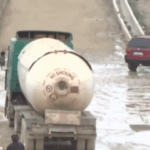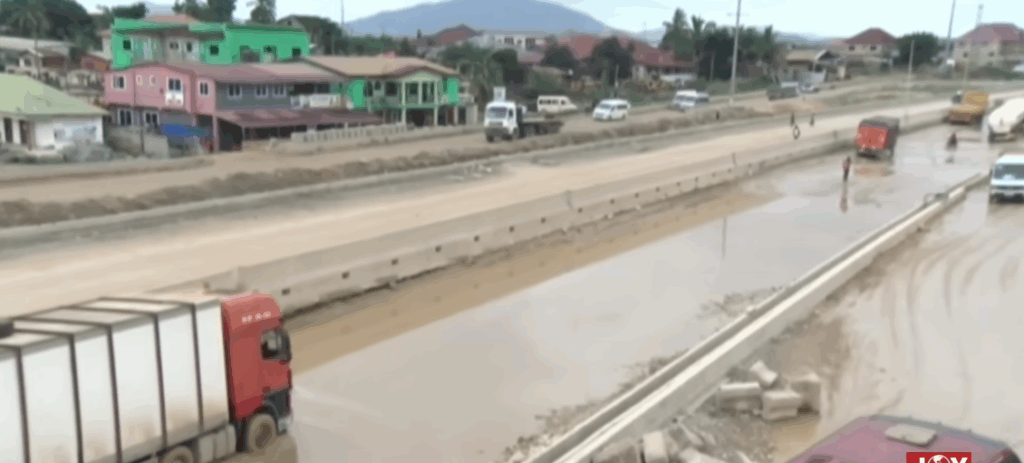
Growing up I never liked the sight of dead bodies, especially when they are dressed up for their final funeral rites and their caskets opened for families and loved ones to file past them and pay their last respects.
For some ridiculous reasons, I always thought that after seeing the cadaver, their ghosts would appear or speak to me at night when I was alone, as I had seen in Ghanaian and Nigerian movies.
I quite recall swinging by a funeral at Obuasi – New Estate, the day I inquisitively caught glimpses of a corpse for the very first time. It was the funeral of a woman who had died shortly after she got married. Her mortal remain was dressed in, what I reckoned, the gown she wore on her happy day. The nights after I beheld this horrendous scene were some of the scariest moments of my life. Why would I be afraid to bathe or walk alone in the corridors of my father’s house whenever it was dark?
My cousins, Maabena and Adwoa, whom I had gone to see the corpse with, scared the hell out of me whenever I was returning from their house to mine at night. They would shout from their window, “Efunu no a na w’afee ne se no ba o!” – to wit – “the dead woman with a weird smile is after you!”. I would sprint and barge into my father’s house, which was adjacent to theirs, as if I knew about the woman’s cause of death.
My hallucinations at the tender age were incomparable, not even to my obsessed imaginations of one day wearing a stethoscope around my neck and adorning myself with a white lab coat.
I thought I had overcome my necrophobia all these years until I was tasked to report on the tragic demise of our gallant heroes at Adansi Brofoyeduru – May their gentle souls rest peacefully. At the scene, I boldly overcame my phobia and did what was required of me. However, the silly thoughts haunted me again, deep in the night after I had returned to Kumasi from the crash site to file my report for the 6 am news bulletin.

I was visiting the washroom at about 1 am when a quiet whisper thought to me “what if Alhaji Murtala Mohammed appears behind the window at the washroom?”. I panicked initially but quickly realigned my thoughts to my usual belief “There are no ghosts on earth”. I peed quickly and dashed into the newsroom.
I continue to have flashbacks from the scene periodically. These memories will never leave me. I can only imagine how their families would struggle to part ways with the lasting and painful imprints from the tragic incident.
There have been speculations about the circumstances leading to the tragic helicopter crash. Some people say a faulty aircraft caused the unfortunate crash while a section of the public attributes it to inexperienced flying officers [which I utterly disagree]. One striking reason to me, as a contributory factor, is how hazy the skies have become recently in Ghana.
The country has, in the last few months, experienced cooler weather patterns with cloudiness in the early mornings and sometimes the entire day. Weather forecasters say this could bring about visibility challenges, especially for pilots. Either way, we can only wait for the full report detailing events that resulted in the aircraft crashing into the woods.
Notwithstanding, visibility could be challenging for any aircraft. My first experience with turbulence is one I hope to never experience again.
So I understood a man who sat by me through my latest journey to Accra. It was his first trip by road in a very long time. He claims to always travel by flight from Kumasi to Accra. But after the crash incident, he fears for his life. I’m pretty sure this is a sentiment shared by many regular airborne passengers. Some of them probably mustered courage to continue traveling by the regular means of transport, but for the many who are scared in such times, they resort to traveling by road.
And that is one tiring, risky and unsafe route. Yes! One might argue even the planes aren’t that safe because what happens “if you mysteriously fall off the skies” or perhaps “crash”. I feel it is better off to know you are about dying than to just be surprised by your own death.

I think I side with people who bear the notion that “it’s safer to join a flight than to travel by road”. In fact, if we all had the wherewithal, nobody would even think of traveling a long distance by road. But here we find ourselves living by the Akan adage “Nsa teaa nyinaa nyɛ pɛ” – to wit – “The hand bears different lengths of fingers”. Although we may think it’s just normal to travel the country by road, at least it has to be motorable and safe.
It’s always a roller coaster whenever I find myself traveling from Kumasi to Accra by road. I have lost count of the number of persons who have died on the stretch. I’m pretty sure you have, too. Husbands have lost their wives. Parents have lost their children, and families and friends have lost their loved ones. The pain left in the heart of families, only because they had gently bade themselves farewell, but later they would know it was their last goodbye.
It’s not surprising that my parents, especially my mother, would call me intermittently during my trips to Accra, just to know where I had reached. Sometimes, I would be utterly infuriated when her call came through. But when I nearly thought the VIP bus I was on board last week to Accra had toppled, I called out her name in my thoughts.
The bus was snaking through the pothole-riddled Nsawam-Amasaman stretch when it nearly ditched into a puddle. With almost one side of it – the column I was seated on – touching the ground, I had my heart in my stomach.
For anyone who has, in recent times, used the road, you would bear with me the deplorable state of it. Not only would you be dancing to the rhythmic sway in your seat, but to the excruciating pain you might endure should when your vehicle hit a ditch.
The stretch is the most vital road connecting the national capital to the Middle and Northern parts of the country. It serves as the economic route for many traders, tourists, and revelers, among others.
It feels as though I am echoing the usual screams of the many communities with poor roads, but as usual, business it would fall on deaf ears. But if our governments have a tiny bit of dignity, they would heed to the concerns of citizens. They shouldn’t sit to have the roads destroy the citizenry.
Thankfully, the contractor for the Nsawam-Amasaman road is back on site; hopefully, he will complete the road in due time, next year as promised.
Even as we may demand that the government make the roads motorable, it behoves us as regular users of these roads to travel on them cautiously to avoid carnage and the fatalities they come along with.
It’s our duty to protect our lives. The blood of the sixteen children and the grief we continue to endure from the many individuals who have died on the road must not be mere rhetoric.
The government must put action to words because our skies are hazy and our roads are unsafe!

